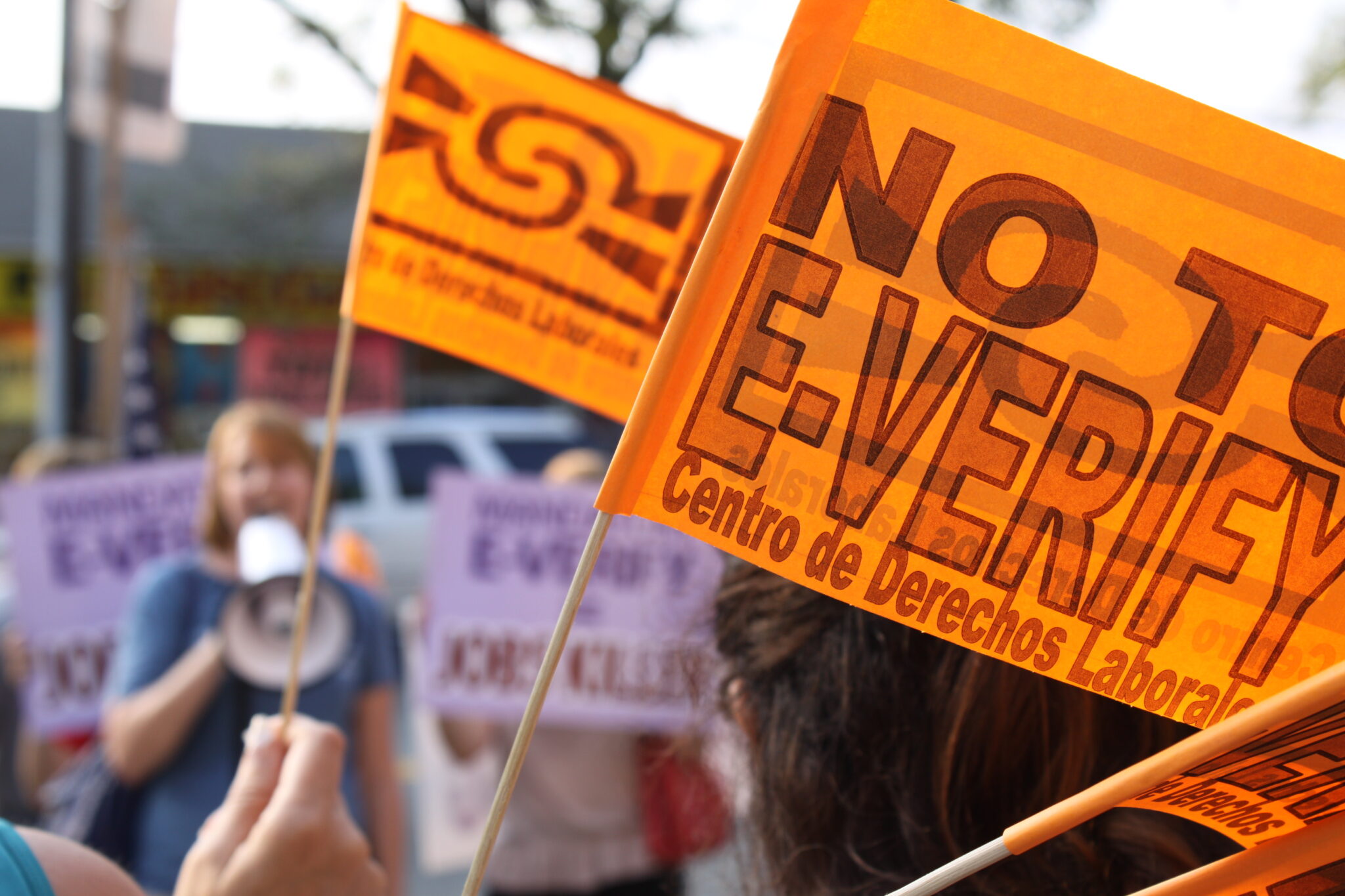
Ted Parker is a student at Harvard Law School and a member of the Labor and Employment Lab.
In today’s news and commentary, state legislatures across the country consider E-Verify bills that would hurt undocumented workers, and the Equal Employment Opportunity Commission (EEOC) shows it will continue to enforce the Pregnant Workers Fairness Act (PWFA), though pressure points remain untested.
Reporting in Bloomberg draws together the efforts of legislatures in more than a dozen states to mandate heightened employer use of the federal E-Verify system. Currently, the federal government requires all employers to check their employees’ identity and employment authorization documents when filling out an I-9 form but not to confirm that authorization through E-Verify. Federal efforts to mandate E-Verify have mostly reached only federal employees and federal contractors. States like Florida, Texas, and Idaho are now targeting private-sector employees through a variety of bills. This crackdown is especially concerning in light of the Trump administration’s plan to cancel Temporary Protected Status for Haitian and Venezuelan refugees, which could leave more than half a million workers without employment authorization. Some of these bills have already failed (as in New Hampshire, Kansas, and Kentucky), potentially because of employer opposition.
The EEOC announced on Thursday that Kurt Bluemel, Inc., defendant in a pregnancy discrimination lawsuit filed by the agency in September 2024, has agreed to settle. The Maryland plant nursery is alleged to have discriminated against a worker attempting to return from maternity leave only to be told that no work was available for her. Now, the employer will pay the worker $40,000 and notify other workers of its violation and their rights. An attorney with the agency announced, “The EEOC will continue to enforce this vital federal law,” referring to the PWFA. The EEOC’s enforcement of the PWFA has been uncertain since Acting Chair Andrea R. Lucas reiterated her previous opposition to the agency’s 2024 PWFA regulations, which she criticizes as an overbroad implementation of the Act. Without a quorum, the regulations cannot be rescinded or modified. This and other cases show that the EEOC will continue to enforce at least parts of the PWFA regulations. Notably, all these cases involved people who were actually pregnant, meaning they did not test the zone of “overbroad” application that Acting Chair Lucas opposes.






Daily News & Commentary
Start your day with our roundup of the latest labor developments. See all
November 13
Condé Nast accused of union busting; Supreme Court declines to hear Freedom Foundation’s suit challenging union membership cancellation policies; and AFT-120 proposes a “Safe Sleep Lots” program for families facing homelessness.
November 12
Starbucks and the NLRB face off over a dress code dispute, and mental healthcare workers face a reckoning with AI.
November 11
A proposed federal labor law overhaul, SCOTUS declines to undo a $22 million FLSA verdict, and a railroad worker’s ADA claim goes to jury trial.
November 10
Meta unveils data center ads; partisan government emails blocked by judge; thousands protest in Portugal.
November 9
University of California workers authorize the largest strike in UC history; growing numbers of legislators call for Boeing to negotiate with St. Louis machinists in good faith; and pilots and flight attendants at Spirit Airlines agree to salary reductions.
November 7
A challenge to a federal PLA requirement; a delayed hearing on collective bargaining; and the IRS announces relief from "no tax on tips" reporting requirements.